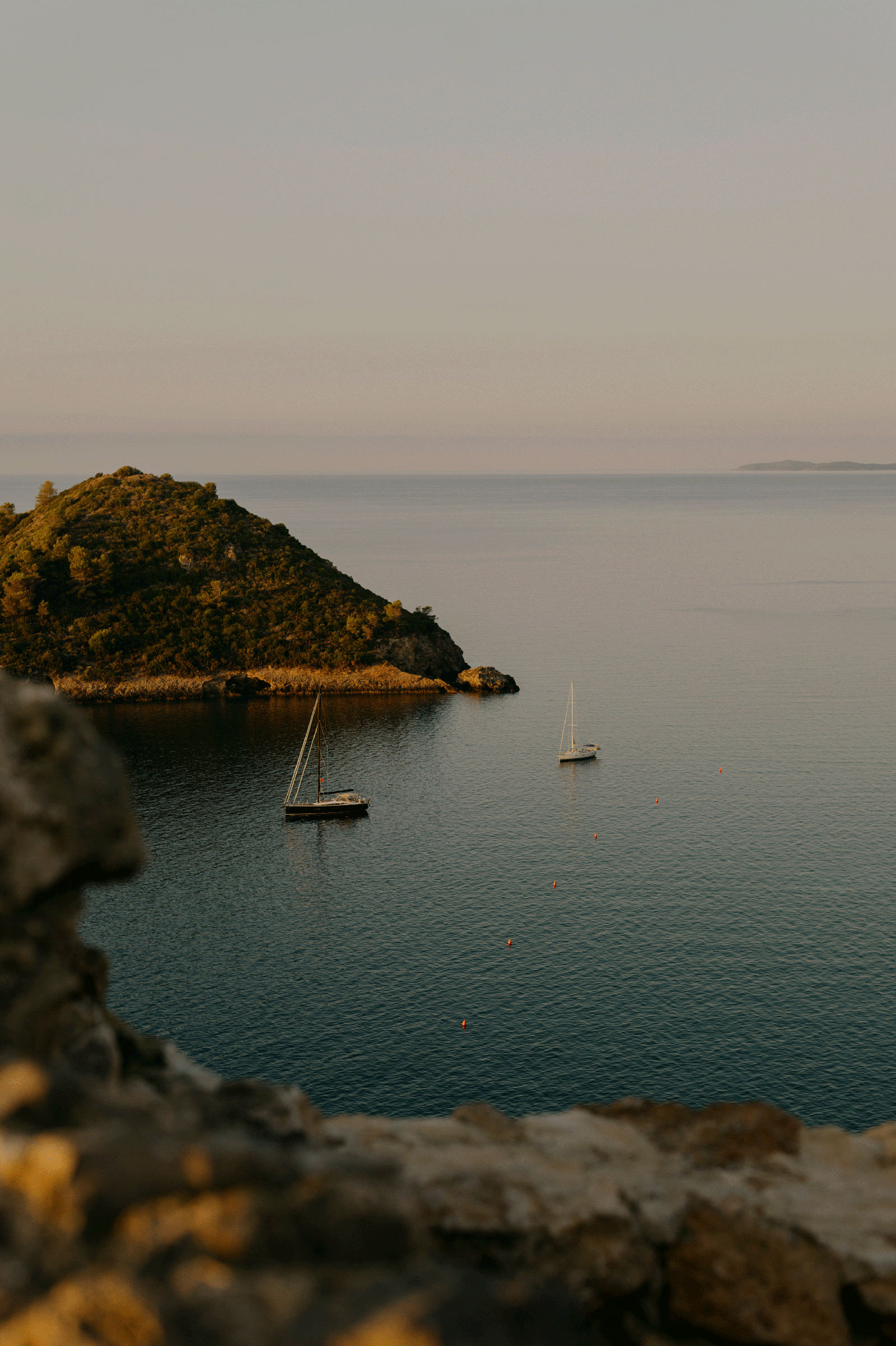On a sweltering summer afternoon, weaver Simone Falli sits at one of his two self-built wooden looms, his feet poised above its pedals, his hands periodically smoothing the tautly stretched yarn as the machine swings into action. His live/ work space, part of a casa colonica farmhouse in the rural outskirts of Certaldo, south west of Florence, features a smattering of his own pieces alongside books, artwork and ceramics. Hand-woven Merino wool scarves nestle among bags made from one continuous length of fabric folded origami-style. ‘They are distinguished by their minimalism,’ says Simone, who learned his craft from his uncle. ‘Weaving is something ancestral, deeply rooted in history. I strive to infuse the objects I make with a contemporary aesthetic.’
This approach is part of a recurring theme for makers in Tuscany who are currently bringing a new simplicity to a region more frequently associated with the opulence of the Renaissance. In turn, that quiet beauty is slowly revealing itself through a handful of hotels – both inland and along the coast. They are dialling down on more obvious luxury and are instead celebrating a deeper connection with their environment. Far from the high glamour of 1960s La Dolce Vita Italy, here there is a synergy between making and being; activity and appreciation. This is encapsulated perhaps by the name of Simone’s studio Ozio, which means leisure and is, he explains, ‘intended as a positive ode to the concept’.
At 9.30pm on a humid summer Monday night in Porto Ercole, that ode is in full swing. On the terrace of La Pinta fish restaurant, a large cross-generational family of Italians who have made the easy pilgrimage here from Rome have gathered to share platters of seafood and carafes of wine. Sitting at the next table, we order a whole white fish and freshly caught prawns, both of which are worth the leisurely half-hour wait. Dozens of boats bob on the inky-blue waters of the promontory, named after Hercules and noted for the remains of three 16th-century fortresses holding court in the distance. Nearby, there is a patient, snaking queue at gelateria Creola. ‘People are looking for local experiences,’ says Giorgio Bonotto, general manager at recently opened La Rogga, a terracotta-hued hotel and beach club that overlooks the harbour. ‘It’s about a low-key, Italian way of life – an evening passeggiata and a gelato.’
To that end, the five-star hotel, owned by the Jonsson family, has a decidedly straightforward philosophy. Having summered on this east coast of Monte Argentario for decades, the Swedish family has made a series of bold decisions aimed at allowing their guests an unfettered relationship with their surroundings. Staff can be reached via Whatsapp rather than a formal in-room phone and bidets have been banished from the bathrooms (much to the initial consternation of some visiting Italians). Instead of having a pool, the hotel encourages guests to head to its recently acquired Isolotto Beach Club, named for the island seen on the horizon, and lounge among its sculptural rocks and green waters.










